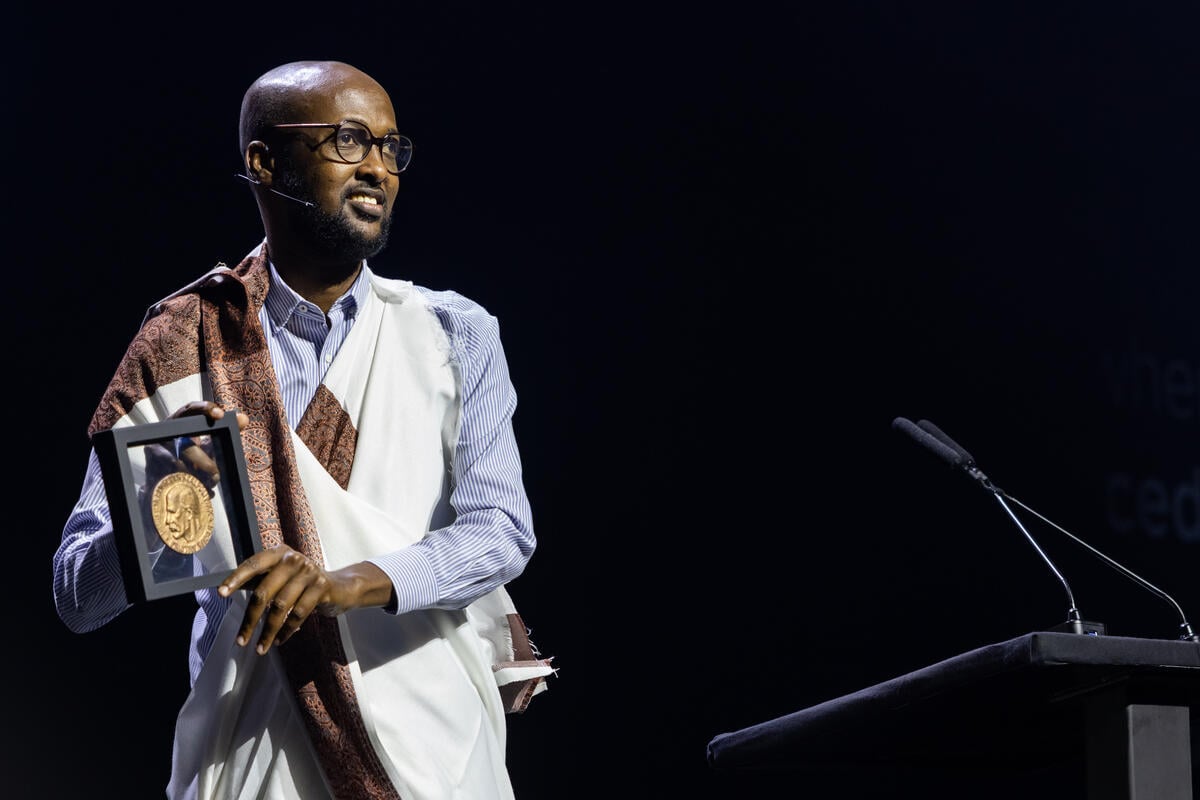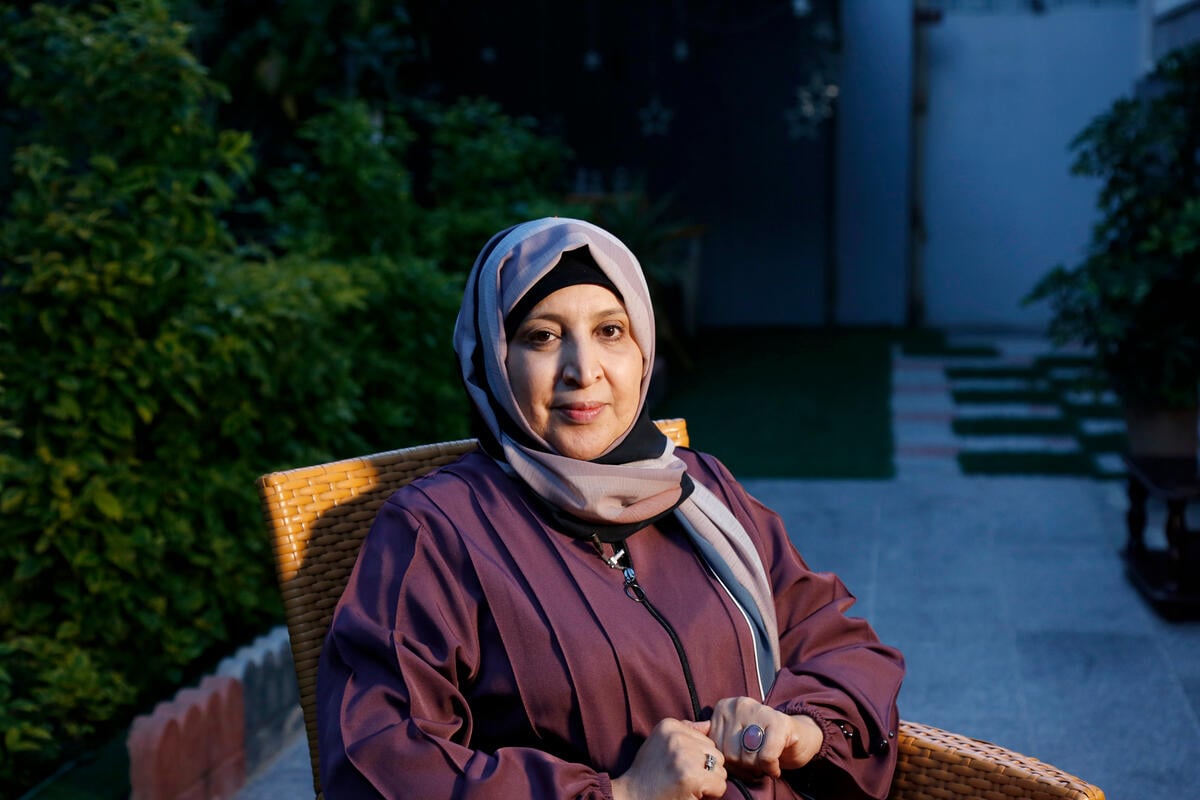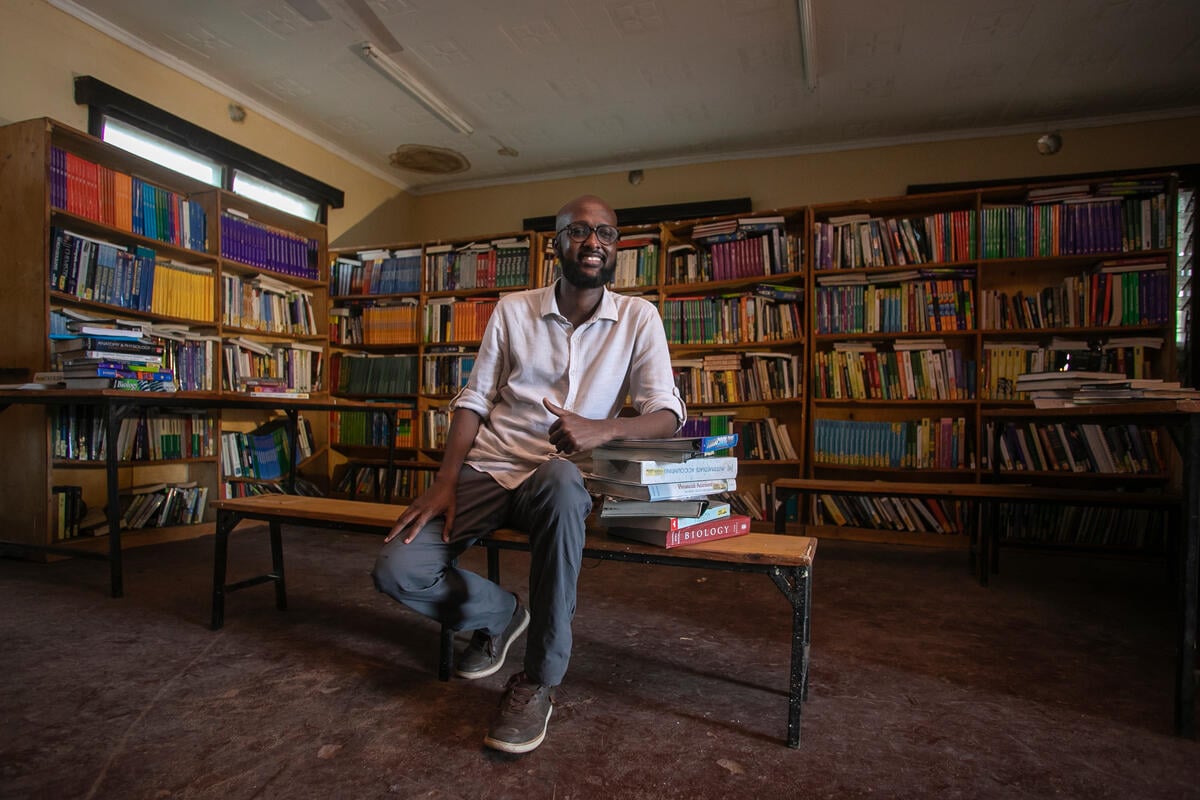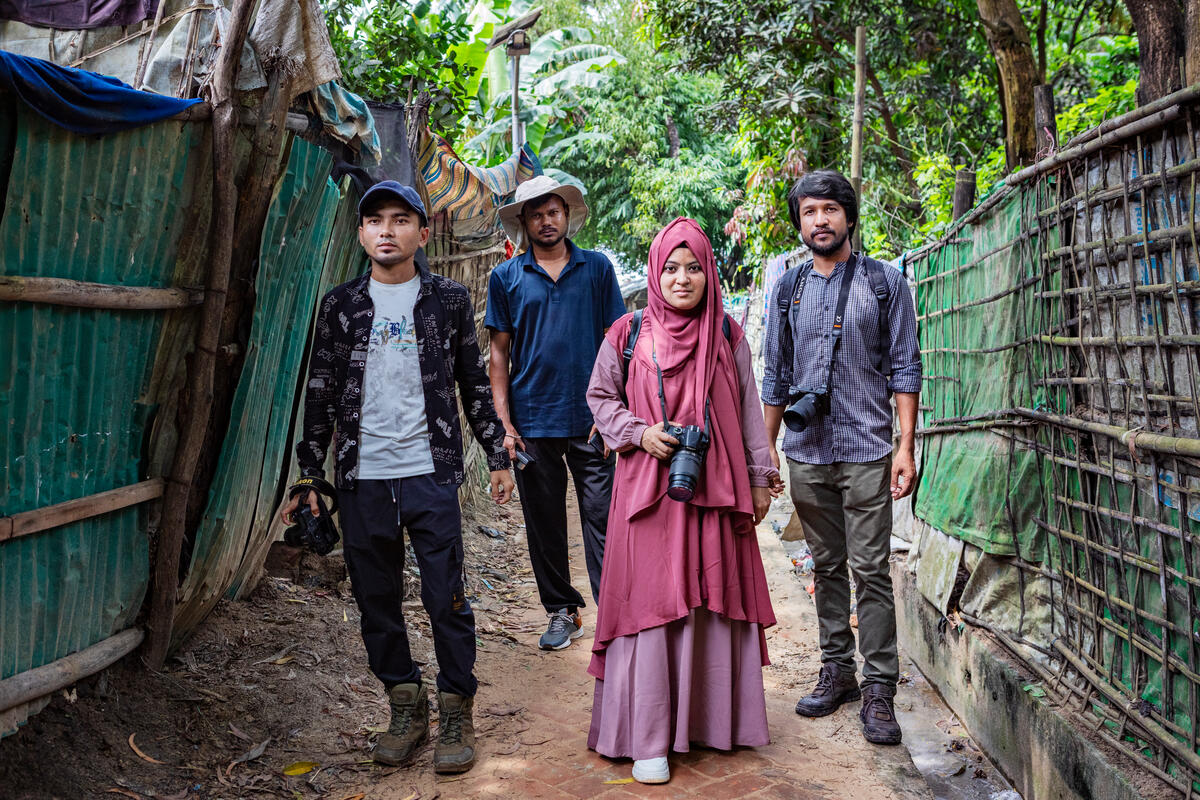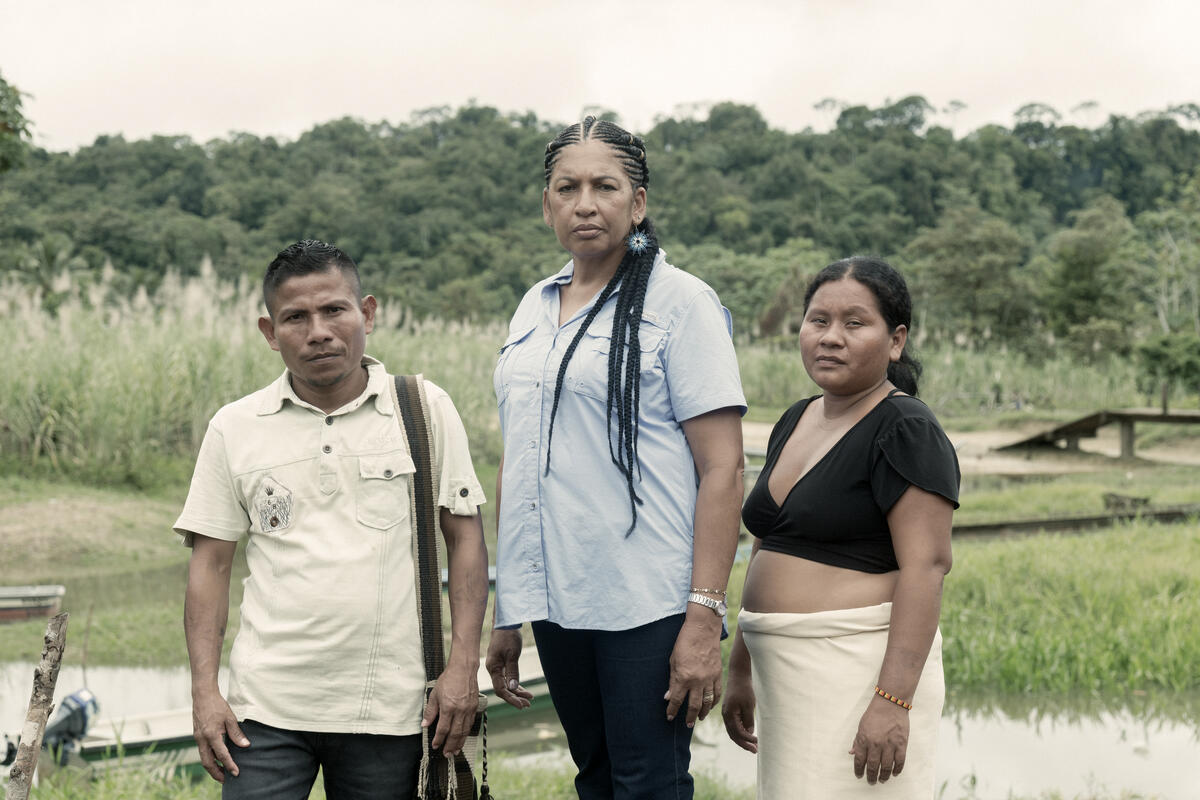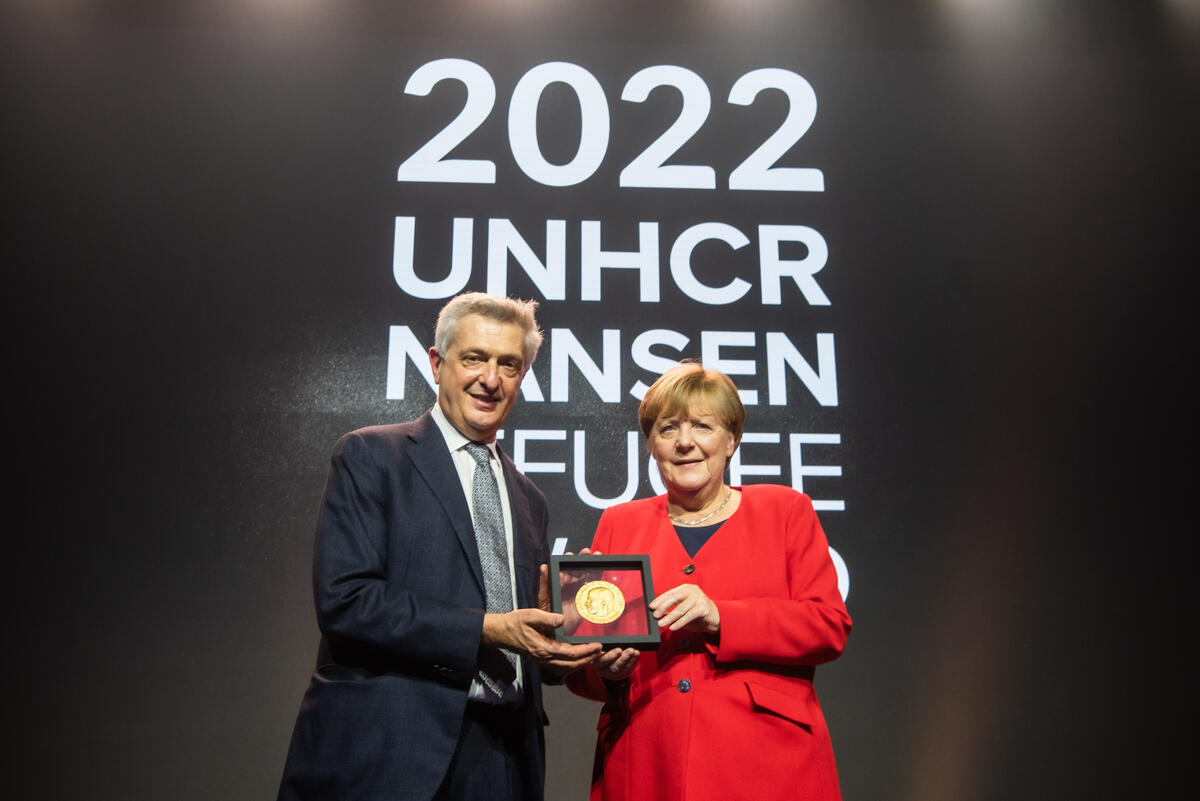UNHCR celebrates 50th year of Nansen Refugee Award
UNHCR celebrates 50th year of Nansen Refugee Award

BARCELONA, Spain, June 21 (UNHCR) - It was a night to remember the past, celebrate the present and hope for the future as more than 1,000 people gathered yesterday for the 50th anniversary of the Nansen Refugee Award in Barcelona.
The ceremony was held on Sunday - World Refugee Day (June 20) - at Barcelona's Palau de la Música Catalana. Guests included dignitaries such as Her Royal Highness The Infanta Cristina of Spain, UN High Commissioner for Refugees Ruud Lubbers, UNHCR Goodwill Ambassador Angelina Jolie, Barcelona Mayor Joan Clos and Spain's Secretary of State for International Cooperation Leire Pajin.
Created in 1954, the Nansen Refugee Award is named after Fridtjof Nansen - Norwegian polar explorer and the world's first international refugee official. It is given annually to individuals or organisations that have distinguished themselves in work on behalf of refugees.
High Commissioner Lubbers started the award ceremony by paying tribute to last year's Nansen award winner, Dr. Annalena Tonelli, who was brutally slain in her hospital in Borama, north-western Somalia.
"Dr. Tonelli was a wonderful, caring person, who made enormous sacrifices throughout her life to help the vulnerable and the destitute. With her humanity and her humility, she touched thousands of people's lives," said Lubbers.
This year's Nansen award winner - Russian Memorial Human Rights Centre - has also helped tens of thousands of refugees and internally displaced people across the Russian Federation.
High Commissioner Lubbers noted that the Russian non-governmental organisation (NGO) was founded 12 years ago in the wake of the Soviet Union's collapse. "The name 'Memorial' was given to the organisation as part of an effort to encourage people not to forget all those who perished during that time," he said. "But Memorial's work focuses not only on dealing with Russia's painful past. It has grown and expanded to become one of the key human rights NGOs in the Russian Federation."
He added, "Memorial is an example of the vital role that NGOs play in today's world in helping to meet the needs of vulnerable and marginalised people, including refugees and asylum seekers. I hope its achievements, and the values that continue to guide its work, will be an encouragement to NGOs seeking to do similar work in other parts of the world."
HRH The Infanta Cristina of Spain presented the award to Memorial representative Svetlana Gannushkina, to overwhelming applause.
"I am happy to receive this UNHCR award, because it is UNHCR that has helped Russian NGOs to establish constructive cooperation with government agencies," said Gannushkina. "UNHCR has always considered Memorial and NGOs to be equal partners and made the Russian authorities show respect for our activities."
She added, "The award will give new impetus to our activities and upgrade the level of trust in our information and proposals which we make to our authorities and the world community."
Already, Memorial has planned an October conference on the migration situation in Russia, and is exploring some social projects. It recently published a book of fairy tales in the Chechen language, and is working to publish more storybooks and textbooks for Afghan and Chechen children in their own languages.
As Gannushkina explained, "It is only through culture that a human being comes to know what is good and bad in life, shares universal values and stops feeling like an outcast."
Barcelona proved the perfect location to rally such support, as this year's World Refugee Day activities were closely tied to the city's Universal Forum of Cultures. Earlier on Sunday, Goodwill Ambassador Jolie helped children from Mozambique and Cataluña to hang up lucky charms for refugees at the forum's "Sky of Aspirations" installation.
Six-year-old Aysia from Canada wrote, "I have a house to keep me warm, and I pray that refugees will have a place to call home again soon."
Switzerland's Johan, 11, and Julia, 12, added, "We wish refugee children can wake up every day feeling cosy at home, with breakfast cooking, their family around, and their toys."
"Refugee kids should have a great school like ours, with nice teachers and lots of fun things to do like soccer and painting and story-telling," wished Alison, six, and Megan, eight, from the United States.
Also on Sunday, the Goodwill Ambassador joined High Commissioner Lubbers at the closing session of a four-year-long dialogue series titled, "Conflicts: Prevention, Resolution and Reconciliation".

"My perfect world would be one without refugees," Jolie told the panel. "That would mean a world without war, without ethnic and religious hatred, without devouring greed, without persecution. I applaud your efforts to bring the measure of tolerance that could make such a world a reality."
She added, "I have walked away from my encounters with refugees carrying a deep conviction that they all have something to contribute to the world community. I would ask you to ensure that your Dialogue recommendations include concrete measures for finding solutions for refugees, so that they have a chance to rebuild their lives in peace and dignity."
Other World Refugee Day events in Barcelona include a photo exhibition on displaced women in Colombia, and a Greek drama, "The Children of Herakles", that was preceded by a debate on current asylum and immigration issues.


